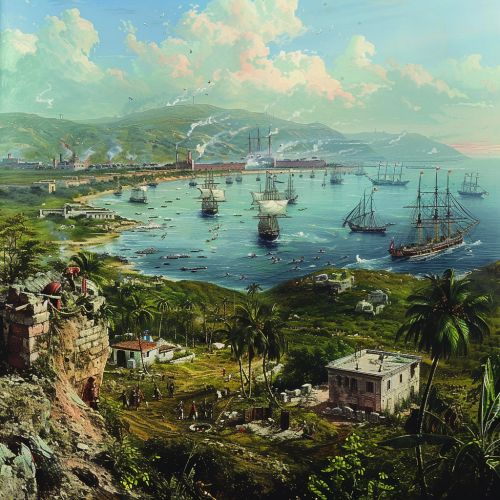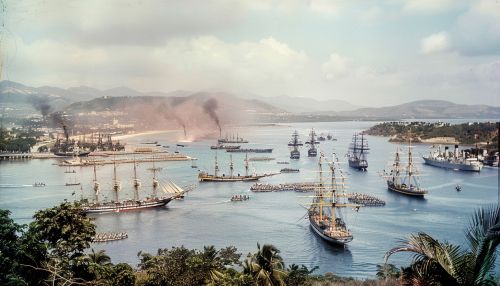Battle of Santiago de Cuba
Background
The Battle of Santiago de Cuba was a significant naval engagement that took place on July 3, 1898, during the Spanish-American War. This battle marked the end of Spanish colonial rule in the Americas and the rise of the United States as a global power.
Prelude to the Battle
In the late 19th century, tensions between Spain and the United States escalated over the issue of Cuban independence. The USS Maine's mysterious explosion in Havana Harbor in February 1898 served as the catalyst for the outbreak of the Spanish-American War. The U.S. Navy, under the command of Rear Admiral William T. Sampson, was tasked with establishing a blockade around Cuba to cut off Spanish reinforcements.


The Battle
On the morning of July 3, the Spanish fleet, led by Admiral Pascual Cervera y Topete, attempted to break through the American blockade. The Spanish fleet consisted of four armored cruisers and two destroyers, while the American fleet was composed of battleships, cruisers, and gunboats.
The battle began when the Spanish fleet emerged from the protection of Santiago's harbor. The American forces immediately engaged, and a fierce firefight ensued. The superior firepower and tactical positioning of the American fleet proved decisive. All six Spanish vessels were either sunk or run aground, while the American fleet suffered minimal damage.
Aftermath
The Battle of Santiago de Cuba marked a turning point in the Spanish-American War. The destruction of the Spanish fleet effectively ended Spain's naval presence in the Western Hemisphere. The battle also paved the way for the U.S. invasion of Puerto Rico, another Spanish colony in the Caribbean.
The victory at Santiago de Cuba had far-reaching implications for the United States. It marked the country's emergence as a world power and set the stage for its future involvement in international affairs. The battle also highlighted the effectiveness of modern naval warfare tactics and the importance of naval supremacy.
Legacy
Today, the Battle of Santiago de Cuba is remembered as a pivotal moment in American history. The battle is often studied in military academies for its tactical lessons. The site of the battle, Santiago Bay, is a popular destination for history enthusiasts and tourists.
